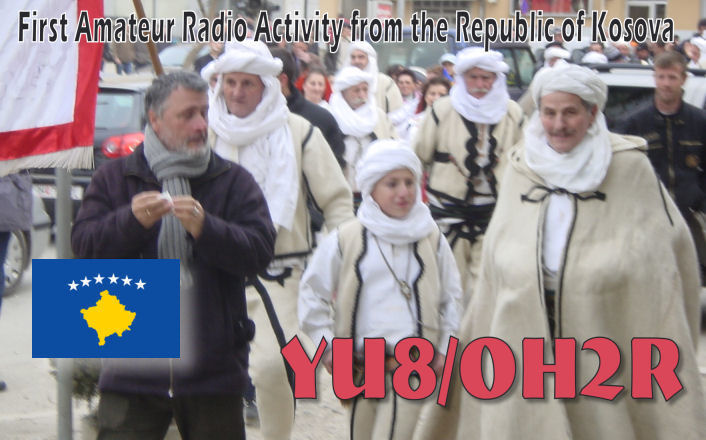
REPUBLIC OF KOSOVO BORN AND
|
CQ Magazine Article
Please see the full story of the first DXpedition to the new Republic of Kosovo at its day of independence and following U.S. recognition. (PDF file, 1.5 MB, from July, 2008. Used with permission.) |
Kosovo's well-planned declaration of independence of February 17, 2008 marks an historic event in many ways, both positive and negative. Therefore an appreciation of its details requires a basic understanding that this web site is designed to present. The aim is also to help the DX community and many entities involved during an interim period which in many respects may turn out to be not only long but also turbulent, verbal or otherwise.
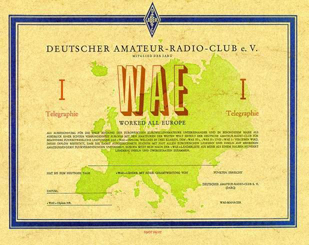
Kosovo Added to
|
The February 17 declaration brings to a conclusion a long period from 1999 to 2008 of the United Nations Mission in Kosovo (UNMIK), and henceforth Kosovo is to function on its own. Nevertheless, steps have been taken to secure Kosovo's peaceful development with the help of NATO forces and with the aid of the European Union's administrative support. The United Nations role is planned to be phased out in 120 days.
Kosovo's declaration of independence was immediately recognized by the United States and several leading European Union nations, including France, the United Kingdom, and Germany. In many other countries the process of recognizing Kosovo's statehood is underway.
The list of countries recognizing the Republic of Kosovo is growing, and two additional countries that recognized Kosovo on March 18 are Japan and Canada. You can follow the growth of the list at www.kosovothanksyou.com.
PROJECT GOODWILL KOSOVO STARTS EARLY 2007
It was in February 2007 when initial contact was made with U.N. Headquarters in New York and local U.N. representatives in Kosovo to prepare Kosovo's entry to the world of Amateur Radio. During these initial visits the objectives were not only to help Amateur Radio in Kosovo but also to utilize many valuable elements of Amateur Radio and take a broader look at its potential in an emerging society.
MISSION STATEMENT
Assisting Kosovo's new Telecommunication Administration and Frequency Management in the task of leading, managing and overseeing the valuable activity of Amateur Radio by implementing International Telecommunication Union (ITU) regulations at the domestic level in the course of the interim "U.N. Kosovo Status Process" and beyond. Assisting the Kosovo Amateur Radio Association (SHRAK) in the re-establishment of its educational and technical training activities under the Ministry of Education and the Ministry of Transport and Post-Telecommunication.
KEY MISSION OBJECTIVES
Project Goodwill Kosovo has several key objectives:
- To work together with the UNMIK Frequency Management Office (FMO), assisting them in the establishment of sound Amateur Radio regulations governing this ITU recognized service in Kosovo during the U.N. Status Process and specifically after the Republic of Kosovo was born.
- To organize a seminar for explaining Amateur Radio's benefits in society when implemented by the Ministry of Education, the Ministry of Transport and Post-Telecommunication, TRA (regulatory authority) and the Faculty of Electronics at the University of Kosovo.
- To work together with the Ministry of Education and the Ministry of Transport and Post-Telecommunication for the integration of the Amateur Radio service into the practical educational structure leading to professional careers in telecommunications.
- To help the existing Amateur Radio Association in its mission to re-energize its activities and to provide the Association with modern tools to promote, coordinate and further consolidate the service in society at large.
- To activate special Amateur Radio stations for the duration of the proposed project so as to increase public awareness of Kosovo as part of the international community.
AMATEUR RADIO ACTIVITY AS PART OF THE NEW REPUBLIC
| SSB | CW | Total | |
|---|---|---|---|
| Total | 4717 | 7018 | 11,735 |
| 40 m | 1843 | 3278 | 5121 |
| 30 m | 0 | 1267 | 1267 |
| 20 m | 2282 | 1758 | 4040 |
| 17 m | 592 | 715 | 1307 |
A multinational invited group of Amateur Radio operators was in Kosovo to participate in the independence festivities in an effort to support and help revitalize Amateur Radio locally. The initial team members began their radio activity on February 16. Activity covered all bands on CW and SSB, using the callsigns YU8/G3TXF, YU8/N7NG, YU8/OH2BH, YU8/OH2PM, YU8/OH8NC and YU8/W3UR.
In addition to the individual multinational Amateur Radio operators (G3TXF, N7NG, OH2BH, OH2PM, OH8NC and W3UR) in Kosovo and operating with UNMIK licenses, the group began activity as YU8/OH2R on February 17, after the independence declaration. The team had two stations, operating on both SSB and CW.
G3TXF, Nigel, has posted some photos of the YU8/OH2R operation from Kosovo at his web site.
Besides participating in the festivities and making courtesy calls, the group made 11,735 radio contacts which you can check by using the log search facility provided by DF3CB.
QSL YU8/OH2R via Jarmo J. Jaakola, OH2BN.
ARRL IGNORES U.S.-RECOGNIZED INDEPENDENT STATE IN DXCC PROGRAM
As explained in a February 19, 2008, entry on the DXCC Dialog Weblog, the ARRL's position is that "Kosovo will be added to the DXCC list [(a)] if it becomes a member of the UN, or [(b)] if it receives a prefix bloc from the ITU." It goes on to explain that "[t]he date upon which either (a) or (b) occurs will be the event date." Of course, given the current political environment, it's not at all clear when such an event date might occur; it could certainly be a long time. In the meantime, QSOs made from Kosovo prior to such an "event date" are being counted as Serbia for DXCC purposes.

Kosovo Added to
|
NEW RULES JUST FOR KOSOVO? NO WAY!
By Wayne A. Millls, N7NG
HISTORY
In 1998, the ARRL Board of Directors approved a substantially revised set
of rules for their DXCC program. One of the major changes made in the
rules concerned the criteria for political entities. The new criteria were
1) the entity is a United Nations (UN) member state, 2) the entity has
been assigned a callsign prefix bloc by the International
Telecommunications Union (ITU) and/or 3) the entity contains a member
society of the International Amateur Radio Union (IARU). If any or all of
the three applied to an entity, it would qualify for the DXCC list as a
political entity. The new set of rules worked very well for several years,
giving DXers new entities such as the Temotu Province of the Solomon
Islands, the Chesterfield Islands and the Palestinian Authority.
In 2004, for reasons only obliquely related to DXing, the ARRL Board of Directors removed the third criteria, the so-called IARU rule. Removing this rule was not entirely necessary, but it was a "short-cut" aimed at solving a larger problem. Removing this rule without replacement, however, was seen by a number of Directors as seriously restricting the ability of the rules to handle a wide variety of situations in the future. Regardless, it was removed anyway. It should be noted that as an addendum to the Board discussion about the IARU rule, the Board noted that it might be necessary to add to the political entity criteria in the future, should the need arise.
In 2006, responding to fallout from the 2004 "situation," ARRL added a DXCC rule (Section II, Paragraph 1c) for the purpose of adding Swains Island to the DXCC list. This rule allowed the addition of Swains Island, and eventually Saint-Barth (FJ) at the end of 2007.
WHAT ABOUT KOSOVO?
Since about 1991, the United Nations has been administering an area of the
former Yugoslavia known as Kosovo. There has been little movement by the
UN for a number of years, partially because recognition of Kosovo could be
seen as a model for obtaining their own independence by other groups of
discontented peoples of the World. Indeed, early in 2007, as ethnic
Albanians in Kosovo continued to agitate for independence, several DXers,
seeing possibilities for new countries, began to investigate the
possibilities. They observed that in the future, besides Kosovo, there may
be other situations in which entities would exist in extended states of
"limbo," that is, recognized by many countries of the World, but
not recognized by the UN. These entities, being recognized by many
existing countries of the World in all aspects short of UN membership
should be considered independent countries, worthy of DXCC
recognition.
Most analysts agree that the UN may never recognize Kosova (Albanian spelling). It is only slightly more likely that the ITU will grant Kosovo the necessary country codes and call sign blocs. Russia and China have already blocked these actions following requests by the UN Mission in Kosovo (UNMIK) in 2005. Waiting endlessly for the UN/ITU to recognize Kosovo in spite of the fact that the US government has already recognized this new entity should be carefully weighed. Counting Kosovo as Serbia in the interim is even worse. After all, the United States itself began with a declaration of independence without the benefit of the United Nations. UN recognition must not be seen as the single authority in the World. As the politics of the World evolves, there may be other alternatives.
Since the current DXCC rules rely almost entirely on recognition by the UN, it is becoming clear that the additional political criteria which was discussed by the ARRL Board in 2004 might now be a necessity. Note! There should be no "exception" to the DXCC rules for Kosovo. Rather, Kosovo should be allowed under the umbrella of change that is needed now and will continue to be needed in the future.
Changes in the DXCC rules should not come easily. Like the US Constitution, occasional changes or interpretations are necessary. Because unintended consequences tend to creep in where consideration has not been sufficient, great care should be taken, however. Considerable time to develop changes could be had simply by taking a position of recognizing that changes must be made, and then proceeding to study the possibilities.
WHAT ABOUT START DATES?
It is possible that the ITU will "come through" for the ARRL. If
that should happen, the Start Date would probably be open to question. The
DXCC rules define the Start Date for "Event Entities" as the
date that the "Event" occurs. An "Event" is defined as
"An historical occurrence, such as date of admission
to UN or ITU that may be used in determining listing status." This
statement does not limit the Event Date to the date of admission to the UN
or ITU. More important, it refers to an historical
occurrence. If the UN event were an historical occurrence, it may
well be the Start Date, as, for example, the admission of Montenegro to
the UN.
In the case of Kosovo, however, it is clear that the date of recognition by the ITU would be arbitrary, and after the fact. The historical occurrence in this case is different. Clearly the historical occurrence in this case occurred on the date of Kosovo's declaration of independence, February 17, 2008.
[The ARRL's decision to start Saint Barthélemy (Saint-Barth) on December 14, 2007, is questionable. It is the date that Saint-Barth was added to the DOS Web list of "Dependencies and Areas of Special Sovereignty." The addition of Saint-Barth to the Department of State (DOS) list was, in fact, very much arbitrary, being precipitated by your How's DX editor, W3UR. It turns out that the DOS Geographer's Office officials had neglected to add it in July, when the DOS made its initial determination. Addition to the DOS list was necessary, and Saint-Barth could not be have been added to the list until it appeared on the DOS list, but the historical occurrence that elevated Saint-Barth to DXCC political entity level was the effective date of the action by the French government, February 22, 2007, not the arbitrary addition of Saint-Barth. (. . . and some of our French friends were not too happy about the error.)]
There are now several important questions before ARRL's DXCC officials. Is the current DXCC rules structure capable of handling a Kosovo, which the US government says is now independent? If so, and ITU finally issues country codes and call sign blocs to Kosovo, should Kosovo be considered part of Serbia in the interim? Stay tuned!
THE WORLD HAS CHANGED, SUGGESTING NEW MEASURES FOR DXCC
The process drafted for Kosovo's independence is such that membership in the U.N. should not be considered the sole measuring stick for the country's status in the international community. The U.N. as a world body may be paralyzed in the event of fundamental disagreements between the permanent, veto power wielding members of the Security Council. Consequently, other elements of recognition should be considered, and it is suggested that all parties see this as a special case that ought to be facilitated on its own right.
The following statements represent the complexity of the case:
FROM THE DESK OF BOB LOCHER, W9KNI
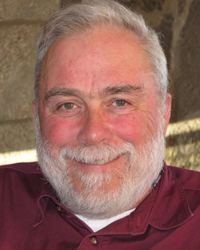 I strongly disagree with the DXCC ruling that the "event
date" for counting contacts with Kosovo should be the date that it is
granted an ITU call bloc or U.N. membership. Rather, the "event
date" should be that of the "event" that triggers a call
bloc allocation or U.N. membership - in this case the date of the Kosovar
declaration of independence. Once DXCC country status is achieved, QSOs
should be accepted from the date of Kosovo's declaration of independence.
This would clearly be consistent with past DXCC practice.
I strongly disagree with the DXCC ruling that the "event
date" for counting contacts with Kosovo should be the date that it is
granted an ITU call bloc or U.N. membership. Rather, the "event
date" should be that of the "event" that triggers a call
bloc allocation or U.N. membership - in this case the date of the Kosovar
declaration of independence. Once DXCC country status is achieved, QSOs
should be accepted from the date of Kosovo's declaration of independence.
This would clearly be consistent with past DXCC practice.
To count contacts with Kosovo after its declared independence as Serbia, as the present DXCC rule would have it, is a significant insult to Kosovo. Furthermore, it is ludicrous.
Bob Locher, W9KNI
Ex-Chairman, DXAC
FROM THE DESK OF KIP EDWARDS, W6SZN
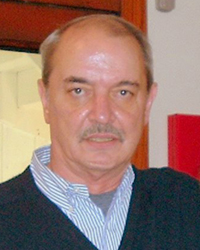 I urge the ARRL to reconsider their decision to count contacts
with Kosovo for Serbia - the very entity from which Kosovo declared its
independence and which fiercely opposed Kosovo's independence. With its
February 19 decision, the ARRL has placed itself at odds with the policy
of the United States as well as its allies who have joined in formally
recognizing Kosovo's independence.
I urge the ARRL to reconsider their decision to count contacts
with Kosovo for Serbia - the very entity from which Kosovo declared its
independence and which fiercely opposed Kosovo's independence. With its
February 19 decision, the ARRL has placed itself at odds with the policy
of the United States as well as its allies who have joined in formally
recognizing Kosovo's independence.
Membership in the U.N. will not occur so long as Russia, a permanent member of the U.N. Security Council, adheres to its stated position to veto any U.N. recognition of Kosovo as a sovereign and independent entity. It was for this reason that the U.N. stepped out of the process and the European Union went forward with the implementation of the U.N. roadmap for independence.
Kip Edwards, W6SZN
Director and Secretary, Yasme Foundation
Ex-Director, Northern California DX Foundation
FROM THE DESK OF BERNIE MCCLENNY, W3UR
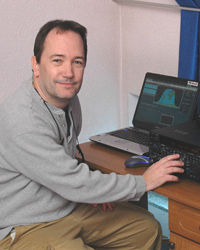 I was part of the invited multinational Amateur Radio team in Pristina,
Kosovo and witnessed the birth of a new country on February 17. After 9+
suffering years of being in a state of limbo under the authority of the
United Nations Mission in Kosovo (UNMIK), the people of this fledgling
nation declared the independence of a new State before the eyes of the
whole world. As they walked "Bill Clinton Boulevard" you could
see and feel the excitement of the people waving multiple American flags
and thanking the United States for their support over the last nine years
and in recognizing Kosovo's independence.
I was part of the invited multinational Amateur Radio team in Pristina,
Kosovo and witnessed the birth of a new country on February 17. After 9+
suffering years of being in a state of limbo under the authority of the
United Nations Mission in Kosovo (UNMIK), the people of this fledgling
nation declared the independence of a new State before the eyes of the
whole world. As they walked "Bill Clinton Boulevard" you could
see and feel the excitement of the people waving multiple American flags
and thanking the United States for their support over the last nine years
and in recognizing Kosovo's independence.
Pursuing the United Nations road did not produce a positive resolution. Once again the USA had to step forward and assume leadership to bring this case to a completion. The ITU is run by the U.N. and it may not assign Kosovo a new prefix under the current situation any time soon. When you enter Kosovo you are entering a vibrant Republic full of new life. The border to Serbia is currently closed. How much longer will Kosovo need to wait to be recognized by Newington? I call upon my fellow U.S. Amateur Radio operators to request the ARRL follow American policy and recognize Kosovo's independence effective February 17, 2008.
Bernie McClenny, W3UR
Editor, How's DX?, The Daily DX, The Weekly DX

Kosovo Added as Multiplier for CQ WW Contests / CQ DX MarathonMarch 26, 2008 -- "The Worked All Europe (WAE) award committee of the Deutsche Amateur Radio Club (DARC) has voted to add Kosova (Kosovo) to the WAE country list. The CQ World Wide DX Contests and the CQ DX Marathon both use a combination of the DXCC and WAE lists as the basis for their country lists. Therefore, Kosova will now be considered a separate entity for both the CQ DX Marathon (effective February 17, 2008) and for the CQ WW DX Contests, beginning with the CQWW RTTY DX Contest on September 27-28, 2008." |
SUMMARY OF THE KOSOVO CASE
A: The ARRL appears unwilling to honor the Independence Day and U.S. recognition of the Republic of Kosovo as an "event". This is a questionable decision which does not take note of the nature of this special case but instead adheres to the exact wording of DXCC rules as they now stand, ignoring State Department records and U.S. recognition of Kosovo.
B: The ARRL is unwilling to honor radio contacts made during the time period of independent Kosovo or accept them for Kosovo credit with immediate effect or put them on hold, but instead will credit them for Serbia. Again, the matter is at variance with the political environment and with the specifics of the license issuing authority. The U.N. is not a license issuing agent of Serbia.
C: The ARRL has compared the Republic of Kosovo to many self-proclaimed independent countries dotting the globe, such as the Turkish Republic of Northern Cyprus. This statement begs the question, for example, of whether the United States has recognized the Turkish Republic of Northern Cyprus. Recognition and facilitation of the birth of the new Balkan state should under no circumstances be compared with such non-recognized self-proclaimed entities.
D: The ARRL has shown a positive willingness to support the promotion of added DXCC entities by introducing new elements into the DXCC criteria, e.g. in its facilitation of Swains Island which prompted the U.S. State Department list of "Dependencies and Areas of Special Sovereignty" to be included. The sudden change of heart and the desire to close all gates for Kosovo's entry to DXCC leaves room for much speculation.
IN CLOSING
Many new political entities entering the world scene represent an ultimate challenge and responsibility for the Amateur Radio community to understand and help such entities to begin their new life under often complex circumstances. It is more often than not that things can be seen in many ways, but ultimately the facts of life will prevail and in the end, the best interests of Amateur Radio win over any personal preferences or political considerations.
This presentation is prepared to evaluate whether those complex elements are understood and supported at all times. Amateur Radio organizations and their administrators have a role along with those who travel to these countries as part of their "missionary work" and as guests who provide another country to those who Deserve.
Here is the case for your review. The gathered material is compiled by Martti Laine, OH2BH.


